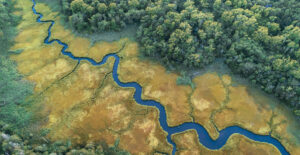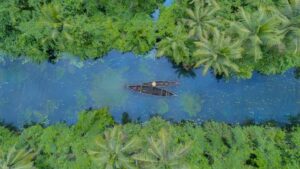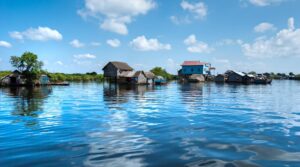Does the EC Water Framework Directive Build Resilience?
The ambition of the initiative is to make emerging scientific theories of resilience operational for policy making that concerns integrated water management. The initiative includes a wide scope of network partners such as Stockholm University, Institute for Social and Environmental Transition (ISET), Stockholm Environmental Institute (SEI), Stockholm International Water Institute (SIWI).

As will be discussed and elaborated in this paper, the perspective offered by emerging theories of resilience adds important and previously poorly elaborated dimensions to what isusually denoted Integrated Water Resource Management (IWRM). Put bluntly, while IWRM suggests an approach that “promotes the co-ordinated development and management of water […] in order to maximize the resultant economic and social welfare in an equitable manner without compromising the sustainability of vital ecosystems” (GWP 2000:22), are silence perspective complements this view with an approach that promotes social learning, experimentation and attempts to enhance the ability of actors to tackle uncertainty, complexity and environmental change.
The issue to be discussed in this paper is whether the EC WaterFramework Directive (WFD) builds resilience, i.e. the capacity of freshwater systems to deal with change and perturbations. The WFD is of crucial importance for the governance of freshwater resources in the European Union. As will be discussed in detail, the current realization of the WFD in Sweden raises some considerable issues, and might at worst reduce the resilience of nested social-ecological freshwater systems. The results should therefore be of interest to all those concerned with how to secure the bloodstream of both nature andsociety: water.
This is the first policy paper from the Resilience and Freshwater Initiative.



